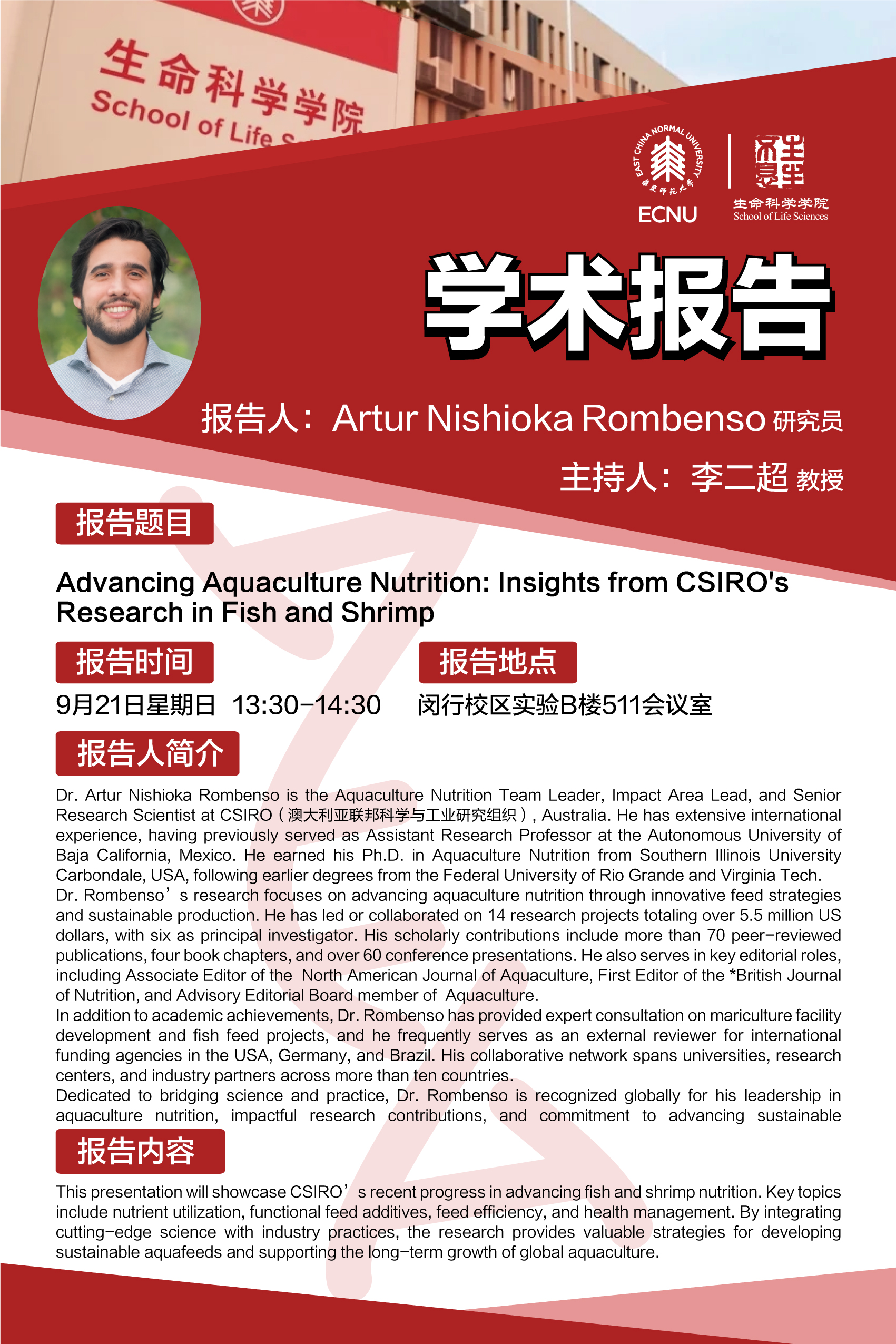报告题目:Advancing Aquaculture Nutrition: Insights from CSIRO's Research in Fish and Shrimp
报 告 人:Artur Nishioka Rombenso 研究员
主 持 人: 李二超 教授
报告时间: 2025年9月21日(星期日) 13:30-14:30
报告地点: 闵行校区实验B楼511会议室
报告人简介:
Dr. Artur Nishioka Rombenso is the Aquaculture Nutrition Team Leader, Impact Area Lead, and Senior Research Scientist at CSIRO(澳大利亚联邦科学与工业研究组织), Australia. He has extensive international experience, having previously served as Assistant Research Professor at the Autonomous University of Baja California, Mexico. He earned his Ph.D. in Aquaculture Nutrition from Southern Illinois University Carbondale, USA, following earlier degrees from the Federal University of Rio Grande and Virginia Tech.
Dr. Rombenso’s research focuses on advancing aquaculture nutrition through innovative feed strategies and sustainable production. He has led or collaborated on 14 research projects totaling over 5.5 million US dollars, with six as principal investigator. His scholarly contributions include more than 70 peer-reviewed publications, four book chapters, and over 60 conference presentations. He also serves in key editorial roles, including Associate Editor of the North American Journal of Aquaculture, First Editor of the *British Journal of Nutrition, and Advisory Editorial Board member of Aquaculture.
In addition to academic achievements, Dr. Rombenso has provided expert consultation on mariculture facility development and fish feed projects, and he frequently serves as an external reviewer for international funding agencies in the USA, Germany, and Brazil. His collaborative network spans universities, research centers, and industry partners across more than ten countries.
Dedicated to bridging science and practice, Dr. Rombenso is recognized globally for his leadership in aquaculture nutrition, impactful research contributions, and commitment to advancing sustainable aquaculture practices.
报告简介:
This presentation will showcase CSIRO’s recent progress in advancing fish and shrimp nutrition. Key topics include nutrient utilization, functional feed additives, feed efficiency, and health management. By integrating cutting-edge science with industry practices, the research provides valuable strategies for developing sustainable aquafeeds and supporting the long-term growth of global aquaculture.
